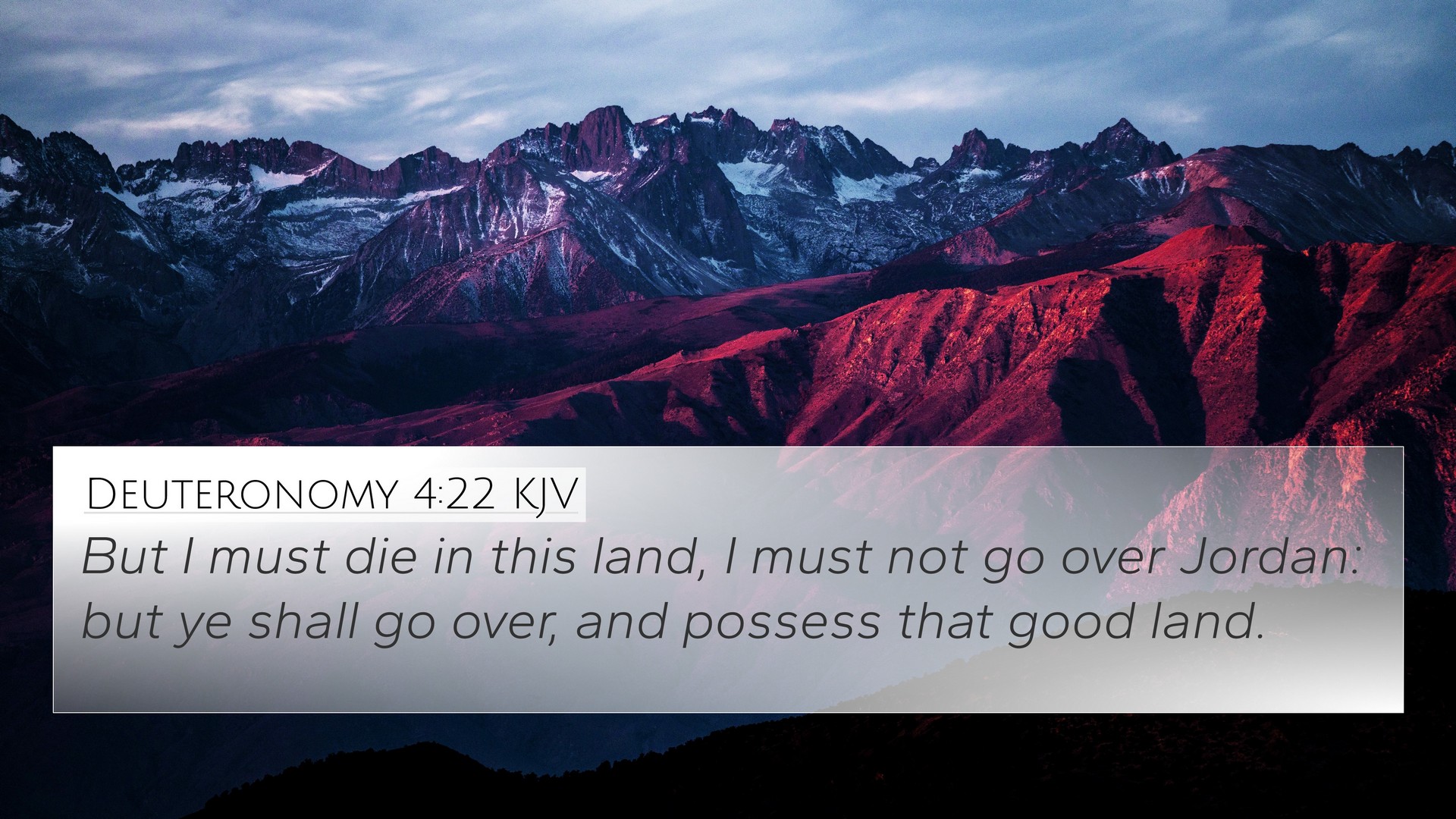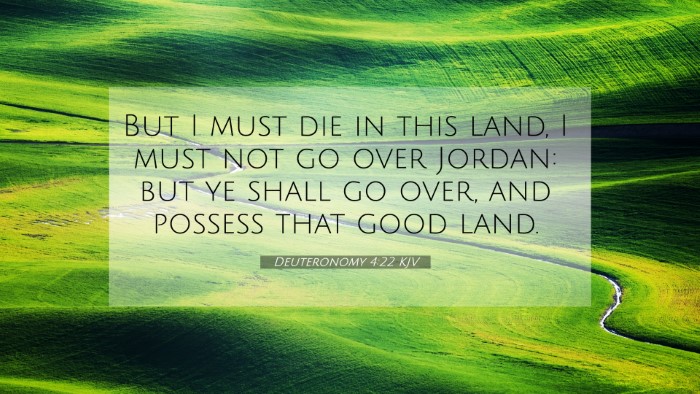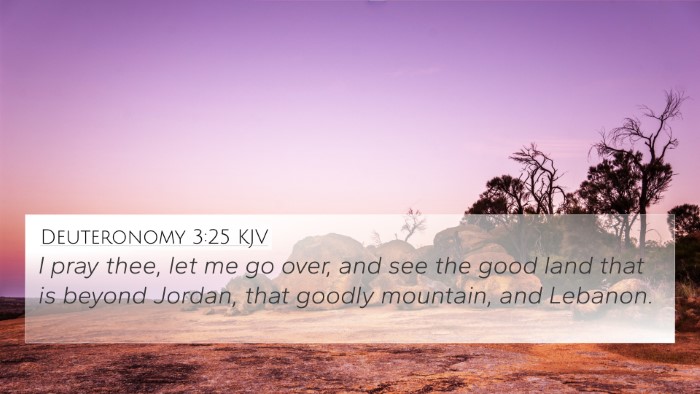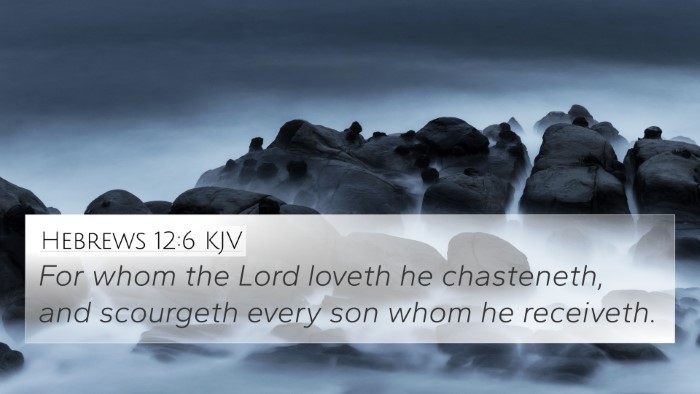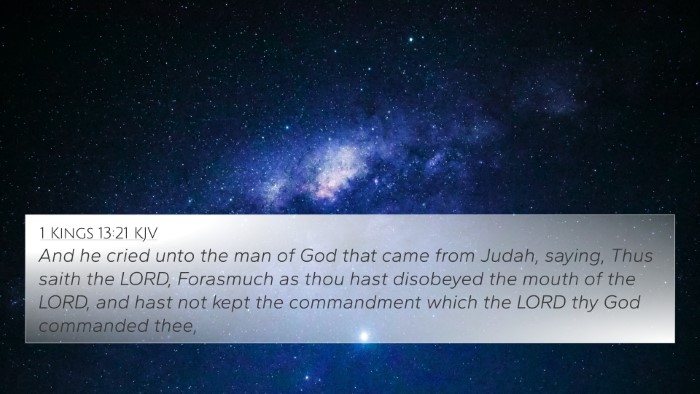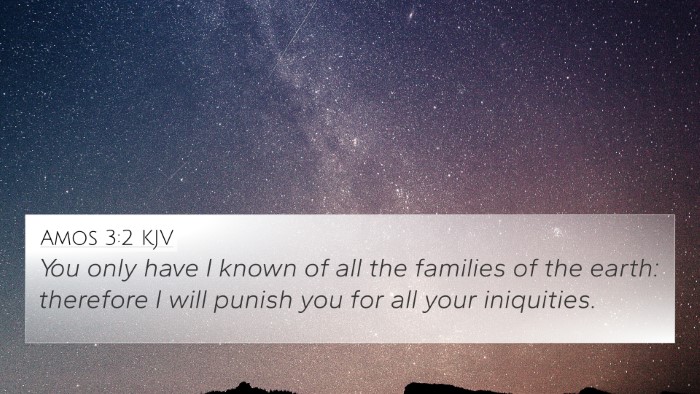Meaning and Interpretation of Deuteronomy 4:22
Verse Reference: Deuteronomy 4:22
Text of the Verse: "But I must die in this land; I must not go over the Jordan; but you shall go over and possess that good land."
Contextual Overview
Deuteronomy 4:22 is a significant verse within the context of Moses' farewell address to the Israelites as they prepare to enter the Promised Land. This part of scripture reflects both a culmination of Israel's journey and Moses' own impending fate, demonstrating the intertwining of leadership, legacy, and divine promise.
Summarized Interpretations
The verse can be understood through various commentaries that highlight its theological, historical, and pastoral significance:
- Matthew Henry: Henry emphasizes Moses' acknowledgment of his limitations and the consequence of disobedience. He notes that while Moses has been a faithful leader, his actions have resulted in God’s decree that he cannot enter the land he has longed to see. This serves as a lesson on the importance of obedience to God's commands.
- Albert Barnes: Barnes reflects on the implications of the promised land being designated for the people of Israel rather than for Moses. He highlights the theme of inheritance, indicating the transfer of leadership and the significance of entering the land that represents God's promise and blessing.
- Adam Clarke: Clarke provides an introspective view on Moses' emotional state in this moment, noticing the gravity of parting from the people and the land that has served as a central focus in their covenant relationship with God. His commentary emphasizes a pastoral care for Israel's future and the necessity of them being vigilant in maintaining their covenant with God.
Thematic Connections
Deuteronomy 4:22 connects to several overarching themes that recur throughout the Bible:
- Leadership Responsibility: Moses' fate highlights the weight of spiritual leadership and the responsibilities leaders bear for their actions.
- Divine Justice: The repercussions of Moses’ earlier disobedience demonstrate God’s unyielding justice and the seriousness of adherence to His commands.
- Promise and Inheritance: The focus on entering the Promised Land emphasizes God’s faithfulness in fulfilling His promises to His people.
Cross-References
This verse relates to several other Biblical passages, creating rich thematic parallels and insights:
- Exodus 3:8 - God's promise to deliver Israel to a land flowing with milk and honey.
- Numbers 20:12 - God's rebuke of Moses for failing to sanctify Him before the people, explaining why Moses cannot enter the promised land.
- Deuteronomy 3:23-27 - Moses' request to enter the land and God's denial of this request.
- Joshua 1:1-2 - The transition of leadership from Moses to Joshua as the Israelites prepare to enter the land.
- Hebrews 3:16-19 - A New Testament reflection on the disobedience of Israel and the rest that God promises.
- Romans 15:4 - Paul speaks about the importance of the scriptures for encouragement and hope, highlighting how these stories remain relevant.
- Galatians 3:29 - Discusses believers as heirs according to the promise, connecting the promise of the land to spiritual inheritance.
Practical Applications
Understanding Deuteronomy 4:22 can impact one’s spiritual journey in several ways:
- Reflective Leadership: Encourages leaders to be mindful of their actions and the long-term effects they have on those they lead.
- Faithfulness to Divine Promise: Inspires believers to trust in God’s promises and the importance of diligent pursuit of spiritual inheritance.
- Importance of Obedience: A reminder of the consequences of disobedience and the need for constant alignment with God’s will.
Conclusion
Deuteronomy 4:22 serves as a poignant reminder of the intricate balance between God's justice, the calling of leadership, and the enduring promise of God to His people. The verse encapsulates critical lessons on obedience, legacy, and transition, urging believers to reflect on the importance of their faith journey and the promises of God. The cross-references to other biblical texts enrich the understanding, providing a broader context for how these themes play out throughout scripture.
